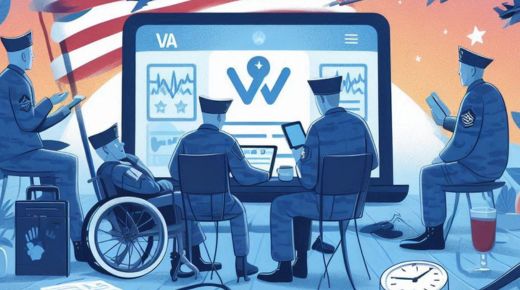As the landscape of healthcare evolves, the Department of Veterans Affairs (VA) is at the forefront of embracing innovative solutions to enhance care for veterans. Remote monitoring has emerged as a transformative approach, fundamentally redefining how healthcare is delivered to those who have served our country. This blog will explore how remote monitoring is reshaping veteran care at the remote patient monitoring va, offering improved access, personalized treatment, and better health outcomes.
1. The Shift Towards Remote Monitoring
Embracing Technological Advances
In recent years, the healthcare industry has witnessed a significant shift towards digital solutions. The VA recognizes the potential of remote monitoring technologies to provide timely and efficient care. By utilizing digital health tools, veterans can now receive ongoing monitoring and support without the constraints of traditional healthcare settings.
Meeting the Needs of Veterans
The unique challenges faced by veterans, particularly those in rural or underserved areas, necessitate a rethinking of traditional care models. Remote monitoring offers a solution that addresses geographic barriers, ensuring that veterans can access essential services regardless of their location.
2. Benefits of Remote Monitoring for Veterans
Increased Access to Care
Remote monitoring breaks down barriers to access, enabling veterans to receive care from the comfort of their homes. This is especially beneficial for those with mobility issues or chronic conditions that make travel challenging. Veterans can connect with their healthcare providers through digital platforms, eliminating the need for frequent in-person visits.
Proactive Health Management
Remote monitoring facilitates proactive health management, allowing healthcare providers to track patients’ vital signs and health data in real-time. This continuous monitoring enables early detection of potential issues, allowing for timely interventions and reducing the risk of complications. Veterans can take an active role in managing their health, leading to better outcomes.
3. Enhancing Patient Engagement
Empowering Veterans
Remote monitoring empowers veterans by giving them more control over their health. With access to real-time data, veterans can better understand their conditions and participate in decision-making regarding their care. This empowerment fosters a sense of ownership and encourages adherence to treatment plans.
Strengthening Communication
Remote monitoring enhances communication between veterans and their healthcare teams. Digital tools allow for easy sharing of health information and ongoing dialogue, building trust and ensuring that veterans feel supported throughout their healthcare journey. This strong communication network is essential for effective care.
4. Comprehensive Mental Health Support
Addressing Mental Health Needs
Many veterans experience mental health challenges, including post-traumatic stress disorder (PTSD) and depression. Remote monitoring plays a crucial role in supporting mental health by enabling continuous check-ins and assessments. Healthcare providers can monitor symptoms and provide timely support, ensuring that veterans receive the care they need.
Reducing Isolation
Isolation can be a significant issue for veterans, particularly those living alone or in remote areas. Remote monitoring fosters regular contact with healthcare providers, helping to combat feelings of loneliness. The reassurance of ongoing support contributes to improved mental well-being.
5. Personalizing Veteran Care
Tailored Care Plans
Remote monitoring allows for the development of personalized care plans based on real-time data. Healthcare providers can create targeted strategies that address each veteran’s unique health needs, leading to more effective management of conditions and better overall care.
Flexibility in Treatment
The flexibility offered by remote monitoring enables veterans to engage with their healthcare providers in ways that suit their lifestyles. Whether through virtual appointments or digital messaging, veterans can choose how and when to receive care. This flexibility enhances patient satisfaction and adherence to care plans.
6. Improving Quality of Care
Enhanced Safety and Quality
Remote monitoring is instrumental in enhancing the quality of care provided to veterans. By allowing continuous oversight of health data, healthcare providers can respond promptly to any concerning changes. This proactive approach reduces the risk of hospitalizations and complications, ensuring veterans receive the highest standard of care.
Streamlining Healthcare Delivery
Remote monitoring also streamlines the healthcare delivery process. By efficiently managing appointments and resources, the VA can allocate time and attention to veterans who require immediate care, optimizing the use of available resources. This efficiency contributes to improved patient outcomes.
7. Cost-Effective Care Solutions
Reducing Healthcare Costs
Remote monitoring has the potential to lower healthcare costs for both veterans and the VA. By minimizing hospital admissions and emergency room visits, RPM reduces financial burdens. The proactive management of health issues can lead to significant savings in healthcare expenditures over time.
Maximizing Resource Utilization
For the VA, remote monitoring enables better resource utilization. By focusing on preventive care and early intervention, the VA can allocate resources more effectively, ensuring that veterans receive the necessary support without overextending services.
Conclusion
Remote monitoring is redefining veteran care at the DocVA, providing innovative solutions that enhance access, engagement, and overall health outcomes. By embracing this transformative approach, the VA is ensuring that veterans receive the care they deserve, regardless of their circumstances. With increased access to care, personalized treatment plans, and enhanced communication, remote monitoring stands as a beacon of hope for veterans seeking quality healthcare. As the VA continues to innovate, veterans can look forward to a brighter and healthier future, supported by the advancements in remote monitoring technology.

